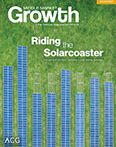Cuba’s Bet on Home-Grown COVID Vaccines Is Paying Off
Published in Nature: https://www.nature.com/articles/d41586-021-03470-x
Preprint data show that a three-dose combo of Soberana jabs has 92.4% efficacy in clinical trials.
When the COVID-19 pandemic began, Cuba decided not to wait on the rest of the world to develop vaccines. The United States’ 60-year-old economic embargo against the country, which prevents US-made products from being exported there, would make it difficult for Cuba to acquire vaccines and therapies, researchers and officials knew. “It was best, for protecting our population, to be independent,” says Vicente Vérez Bencomo, director-general of the Finlay Institute of Vaccines in Havana.
So the Finlay Institute and Cuba’s other state-run biotechnology centres started developing their own COVID-19 vaccines in the hope that at least one of them would be effective. Their bet seems to be paying off: in a 6 November preprint published on medRxiv1, Vérez Bencomo and his colleagues report that one of the institute’s vaccines, Soberana 02, is more than 90% effective in protecting against symptomatic COVID-19 infection when used in combination with a related vaccine. Importantly, the combination seems to be effective against the highly transmissible Delta variant of the coronavirus SARS-CoV-2, which has caused surges in hospitalizations and death across the world and now accounts for nearly all COVID-19 cases in Cuba.
As of 18 November, 89% of Cuba’s population — including children as young as 2 — has received at least one dose of Soberana 02 or another Cuban vaccine called Abdala, which is produced at the Center for Genetic Engineering and Biotechnology (CIGB) in Havana. The centre reported in July that Abdala, a three-dose vaccine, was more than 92% effective in phase III trials that included more than 48,000 participants, but the full results have not yet been published.
Cuba’s regulatory agency authorized Abdala and Soberana 02 shots for use in adults in July and August respectively, and healthcare workers began immunizing children with both vaccines a few months later. The country has begun exporting the two home-grown vaccines to Venezuela, Vietnam, Iran and Nicaragua. And it has asked the World Health Organization to approve its vaccines — an important step towards making them available throughout the developing world.
Major strides
In developing Soberana 02, Vérez Bencomo’s group drew on its existing ‘conjugate’ vaccine technology. Finlay’s conjugate vaccines take a protein or a sugar from a bacterium or virus and chemically link it to a harmless fragment of a neurotoxin protein from the tetanus bacterium. The combination elicits a stronger immune response than either component alone. Conjugate vaccines against meningitis and typhoid are used around the world, and Cuba has been immunizing children with a vaccine of this type for years.
Vérez Bencomo’s team adapted conjugate-vaccine technology to tackle COVID-19 by linking the tetanus-toxin protein to a portion, known as the receptor binding domain (RBD), of SARS-CoV-2’s spike protein (the spike protein helps the virus to enter cells). After more than 14,000 people received two doses of the vaccine in a phase III trial, recipients’ risk of symptomatic COVID-19 was reduced by 71%, compared with that of a placebo group of the same size — an efficacy similar to jabs made by Johnson & Johnson (J&J) in New Brunswick, New Jersey, and AstraZeneca in Cambridge, UK.
To improve on this protection, the Finlay team also gave participants a third shot. The researchers had previously tested a jab called Soberana Plus on people already sick from COVID-19 and found that it improved their immune response2. So they gave Soberana Plus, which is based on the RBD protein alone, to another set of 14,000 participants who had already received two Soberana 02 doses — and discovered that the third dose raised overall efficacy to 92.4%.
Vérez Bencomo says the Finlay Institute can produce 10 million Soberana 02 doses per month. To further test the vaccine, he and his colleagues have partnered with the Pasteur Institute in Tehran to run a similar, 24,000-person trial in Iran and expect to publish those results soon.
CIGB’s Abdala vaccine is also making major strides. As with Soberana 02, the technology behind it is adapted from an existing vaccine — one for hepatitis B — that Cuba developed and has used for many years. The researchers engineered yeast cells to produce a part of the RBD different from that used in Soberana 02, and then purified the protein for use in Abdala. CIGB researcher Merardo Pujol Ferrer says that 24 million doses have been administered to 8 million people in Cuba, giving the researchers a large data set with which to track safety and efficacy. He says the team plans to publish its data later this month.
An expanding toolbox
Protein-based vaccines like Soberana 02 and Abdala might have some advantages over other vaccine types, says Craig Laferrière, head of vaccine development at Novateur Ventures in Toronto, Canada, who has been comparing the safety and efficacy of COVID-19 jabs. Unlike the messenger RNA (mRNA) vaccines produced by Pfizer, based in New York City, and Moderna, based in Cambridge, Massachusetts, protein vaccines do not need to be kept at extremely low temperatures, making them easier to deliver to remote areas.
And they could have fewer side effects than AstraZeneca’s and J&J’s vaccines, which use an adenovirus to deliver the gene for a different portion of the RBD into cells and have been linked to blood clots. Although Finlay’s medRxiv manuscript (which is not peer reviewed) does not contain extensive clinical data, Laferrière expects Soberana 02’s side effects will be minimal, because fewer than 1% of participants in the phase III trial developed a fever. Veréz-Bencomo says further data will be published soon.
But Laferrière adds that there are drawbacks to the approach, too. Protein-based vaccines are made using various types of cells to synthesize gobs of protein. Soberana 02 is produced in hamster ovary cells, which is more time-consuming than some other methods for making this type of vaccine. And evidence suggests3 that conjugate vaccines using tetanus-toxin protein are less effective in people who have already received another vaccine of this type, such as the childhood meningitis vaccine.
Vérez Bencomo says he has confidence in the vaccine’s safety, largely because conjugate-vaccine technology has been used for decades without major problems. Having worked with it to create vaccines for use in children, the Finlay team also knew enough about dosing and side effects to leap into paediatric trials of Soberana 02, which began in June. Nearly 2 million children in Cuba have been vaccinated so far, and Vérez Bencomo says that unpublished data suggest the vaccine is safe and effective.
“I think it’ll be a useful addition for the globe,” says John Grabenstein, president of the vaccine consultancy Vaccine Dynamics in Easton, Maryland. “Everybody’s using a different tool out of the toolbox, and they pretty much are all working.” He says that the Soberana 02 data look solid, but it will take time to determine how long immunity conferred by the vaccine will last.
In the meantime, Cuba is pushing ahead with its COVID-19 vaccine-development strategy. Finlay’s Soberana 01, which links the spike protein to a sugar from a meningitis-causing bacterium rather than the tetanus-toxin protein, and CIGB’s Mambisa, a nasal vaccine that contains the same RBD fragment as is used in Abdala, are still in clinical trials.
doi: https://doi.org/10.1038/d41586-021-03470-x
References:
- Toledo-Romani M. E. et al. Preprint at medRxiv https://doi.org/10.1101/2021.10.31.21265703 (2021).
- Chang-Monteagudo, A. et al. Lancet Reg. Health Am. 4, 100079 (2021).PubMed Article Google Scholar
- Dagan, R., Eskola, J., Leclerc, C. & Leroy, O. Infect. Immun. 66, 2093–2098 (1998).PubMed Article Google Scholar



